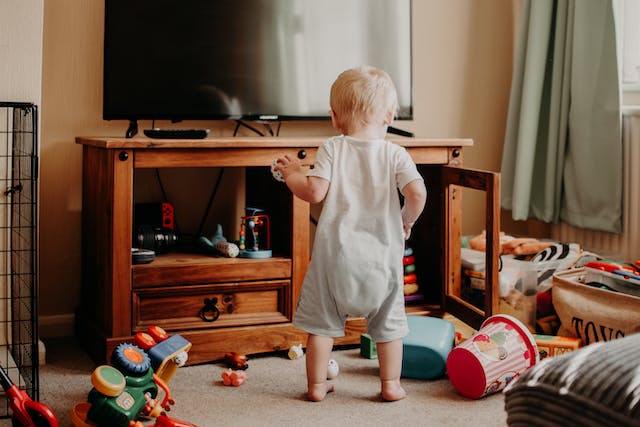Cried at preschool

Question: My son is almost three and he started pre-school a few weeks ago. He does well saying goodbye, but as soon as he steps into the classroom and I’m gone he starts crying. He will cry two hours before I get called in. I come in and stay with him for the rest of the time. He’s only there for three hours and I spent about 11/2 hours with him in the class. What should I do? Should I keep going to his school when I get the call from the school or am I reinforcing his behavior? I don’t want this to be a negative experience for him but I’m very confused with what is best at this time! Cathy
Answer:
Starting preschool can be a very big change for some children. It is a positive sign that he says good-bye easily before falling apart. That tells me that he wants to “try” to be on his own. Is he “trying” because he wants to please you or the teacher (“be a big boy”) or is he “trying” because he likes the activities, the children, the teacher, or the challenge of mastering a new world?
If he’s going to school but has little interest in the school experience, you might wait a little longer and take him to other events. For example, music and movement classes where he can interact with other children and follow directions from other adults. Take him to enrichments activities at libraries, museums, and parks. Three-year-olds are ready to experience a larger world. They are curious about people, places, relationships, and “why”. Schools play a wonderful role in filling that new sense of wonder but active parents and play groups can also fill that role. Of course, if you are working or are ready to return to other adult commitments that necessitate alternative care, you can guiltlessly assist him with this transition or pick a school that will help you with the transition.
On the other hand, he can be very interested in school but lack the social, emotional, and cognitive skills to make the transition quickly. Personality is one factor to how quickly or slowly some children adjust to change. Some children (even if it’s 1 child out of a 100) need time to get comfortable in a new setting. As long as the teachers are accepting of his emotions (without fueling neediness), he will know that he is in a safe and loving place. Continue talking to the school staff about his adjustment. They are experienced with children and can gauge the severity of his reaction. Trust them if they say they see small successes. Each week should get a little easier.
By all means go to the school for half of the morning. If you are worried about “reinforcing” the behavior, tell him before you leave that you will return at a certain time. Of course, give a concrete “time” like after morning snack. I like schools that are comfortable with parents in the classroom and that are comfortable giving some children long transition times. Make a plan with the teacher that each day (or each week for 2-3 weeks) you gradually come later and later. Come at the same time for a few days, then 15 minutes later each day after that. You and the teacher can continually remind your son that you will be there at a designated time.
Most schools have their own tried-and-true separation policy. They know what works for them. Both parents and teachers have critical insights into a child’s personality and a child’s readiness for school. Beginning school is the beginning of a new partnership for you – it takes on-going communication, respect, and trust. Together you and the school can rehearse key phrases and strategies to teach and support your son through this new venture.
Good Luck,
Karen Deerwester, Ed.S.





Follow Us
Join the conversion. Make sure to follow us on our social platforms for the latest content and FamilyTime news.